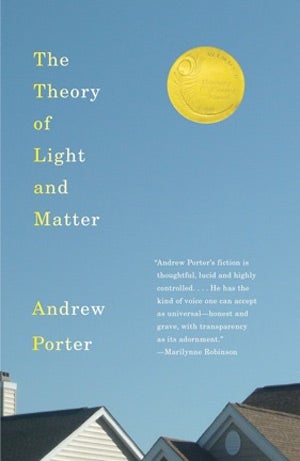The Theory of Light and Matter, By Andrew Porter
Moving moments of truth

Skin, the ninth story in Andrew Porter's quietly affecting debut, is a perfect summation of his concerns and gifts. A young couple lie hopelessly in the arms of love, drinking iced tea during an April of unseasonable heat. Then, in a paragraph, the reality of their future encroaches upon them, unbidden. It is a powerful, direct and resonant story, and one that encapsulates a collection at once arresting and purposefully charged.
The ten stories in The Theory of Light and Matter are devoted – as so much American short fiction is – to the moment of change, the seemingly unimportant incident that reveals a hidden truth. In "Merkin", for example, two close friends stand dangerously on the cusp of a change in their relationship; in the title story, a woman is caught between the man she loves and an intense infatuation with an older man; while in "Storms", a family gathering threatens to change the relationship between a brother and sister.
These small moments are captured in a kind of hazy precision by his narrators. For the most part, these stories are recollections, reminiscent of the best kind of late-night confessional. The opening sentence of "River Dog" –"It's easy now, after everything that happened to my brother, to say I didn't hate him." – embodies Porter's gift of voice and narrative. These are the tales told after a few too many glasses of wine, or perhaps to a stranger in a bar.
Porter's fiction is peopled by those who have not quite made it; the middle classes who have failed according to their own values. "Azul" – probably the stand-out story – tells of a childless couple who pin all their dreams on a gay foreign-exchange student. The anatomy of a failing romantic relationship – the yearning, the sense of loss – is handled with such subtlety and sensitivity that it felt somewhat a shame that there were more coming-of-age stories than those centred on older characters.
The Theory of Light and Matter is deliberately narrow in its focus; there is little variation here in social standing, in period or setting. This is, however, more than compensated for by Porter's expert control of his subject, and his ability to bring depth to characters who at first seem relatively simple. It's a gift that puts him alongside Wells Tower and David Vann as one of America's most compelling new short-fiction writers.
Join our commenting forum
Join thought-provoking conversations, follow other Independent readers and see their replies
Comments
Bookmark popover
Removed from bookmarks